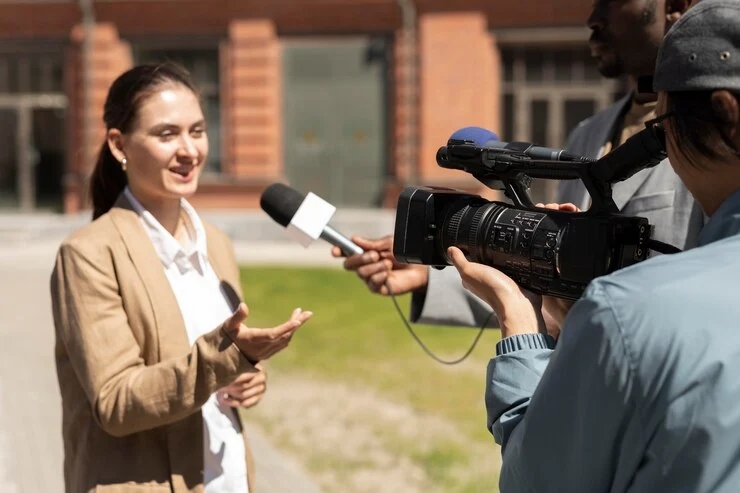The demand for skilled professionals in the field of mass communication is at an all-time high in today’s dynamic world, where information travels at the speed of light. With a degree in Mass Communication, graduates unlock a world of opportunities, paving the way for bright career horizons filled with creativity, innovation, and impact.

Unveiling Diverse Career Paths
One of the most compelling aspects of a Mass Communication degree is its versatility. Graduates are equipped with a diverse skill set that opens doors to a wide array of career paths across various industries. From traditional media outlets such as television, radio, and print journalism to emerging digital platforms, advertising agencies, public relations firms, and beyond, the opportunities are abundant.
Thriving in the Media Landscape
In today’s digital age, the media landscape is constantly evolving, presenting new challenges and opportunities for mass communication professionals. With the rise of social media, streaming services, and digital marketing platforms, there is an increasing demand for individuals who can navigate this ever-changing terrain with skill and expertise. Mass communication graduates are well-positioned to thrive in this environment, armed with a deep understanding of media trends, audience engagement strategies, and content creation techniques.
Making an Impact through Storytelling
At the heart of mass communication lies the art of storytelling. Whether through written articles, visual imagery, audio recordings, or multimedia productions, mass communication professionals have the power to inform, educate, inspire, and entertain audiences around the world. Whether it’s uncovering important social issues, advocating for change, or simply capturing the human experience, the ability to craft compelling narratives is a valuable skill that can make a lasting impact.
Embracing Innovation and Technology

Innovation and technology are driving forces behind the evolution of mass communication. From virtual reality and augmented reality to artificial intelligence and data analytics, the opportunities for innovation are endless. Mass communication graduates are at the forefront of this digital revolution, harnessing the latest tools and technologies to create immersive multimedia experiences, engage audiences in new ways, and shape the future of communication.
Conclusion
As the world becomes increasingly interconnected and information-driven, the role of mass communication professionals has never been more vital. With their unique blend of creativity, communication skills, and technical expertise, graduates are poised to make a significant impact across a wide range of industries. From shaping public opinion to driving social change, the possibilities are limitless for those who embark on a career in mass communication. So, to all the aspiring mass communication graduates out there, embrace the opportunities that lie ahead and embark on a journey filled with endless possibilities. Your future in mass communication is bright, and the world is waiting for your voice to be heard.
To know more visit: M.A. Journalism and Mass Communication | St.Teresas College Ernakulam



